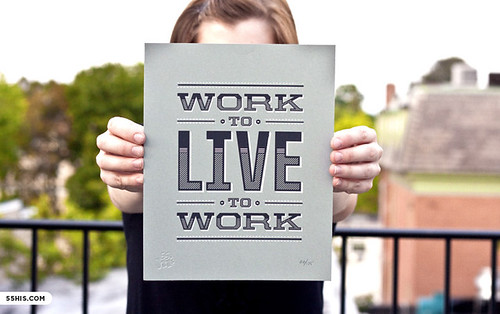Young Professionals are known for their informal global motto of “Work Hard, Play Hard.”
And its one that makes sense.
It feels all too natural in your 20s and 30s to reclaim and push the limits of life after it feels like an Outlook calendar and an irritable boss have sucked it out of you in exchange for what nets out to a blue-collar wage from the 1950s.
Often in that balance, we spend a lot of time worrying about the cost of the playing; the late nights, the oily restaurant foods, the pre-pre-drink-cocktails that get rinsed out at the after-party. And it does take a toll.

But if we are truly doing this all to set ourselves up for a future of comfort and fulfillment, it’s critical that we don’t lose sight of the cost of the working from a perspective of our own biological cashflow. When another 8pm at the office rolls around and your posture looks like it’s made of pasta, your eyes are heavy, your energy level is running at Hibernate, and you think, “this is killing me”, you’re not entirely wrong.
A study released last week looked at data gathered from over 600,000 men and women in Europe, Australia, and the USA. Their goal was to see if any linkages exist between working “long hours” instead of “standard hours” (> 55hrs per week vs. 35 < x < 40hrs per week) and an increased risk of stroke or coronary heart disease.
They do.

After crunching all the numbers, the data showed that, “Employees who work long hours have a higher risk of stroke than those working standard hours…These findings suggest that more attention should be paid to the management of vascular risk factors in individuals who work long hours.”
They also found that people working the 55+ hour weeks were more likely to suffer from coronary heart disease, though the association was statistically weaker than that of stroke risk; the increased risk of coronary heart disease was calculated at approximately 13%. The increased risk of stroke was calculated at over 30%.
The good news is that according to numbers from Employment and Social Development Canada, as of 2012, the average employed Canadian was devoting only 10% of their available time (including sleep) to paid work, clocking in about 36.6 hours per week.
The bad news is that if you’re reading this, there’s a good chance you’re not “the average employed Canadian.”
You should want to work hard and contribute, and express yourself, and feel as though you’ve accomplished something special, leaving behind a unique, memorable legacy. But if you’re working your ass off as part of a long-term attempt to enjoy life, you don’t want to necessarily watch the clock, but at the very least you’d be wise to do a bit of math.
One of the few annoying things about life is that you need to be around to enjoy it.

